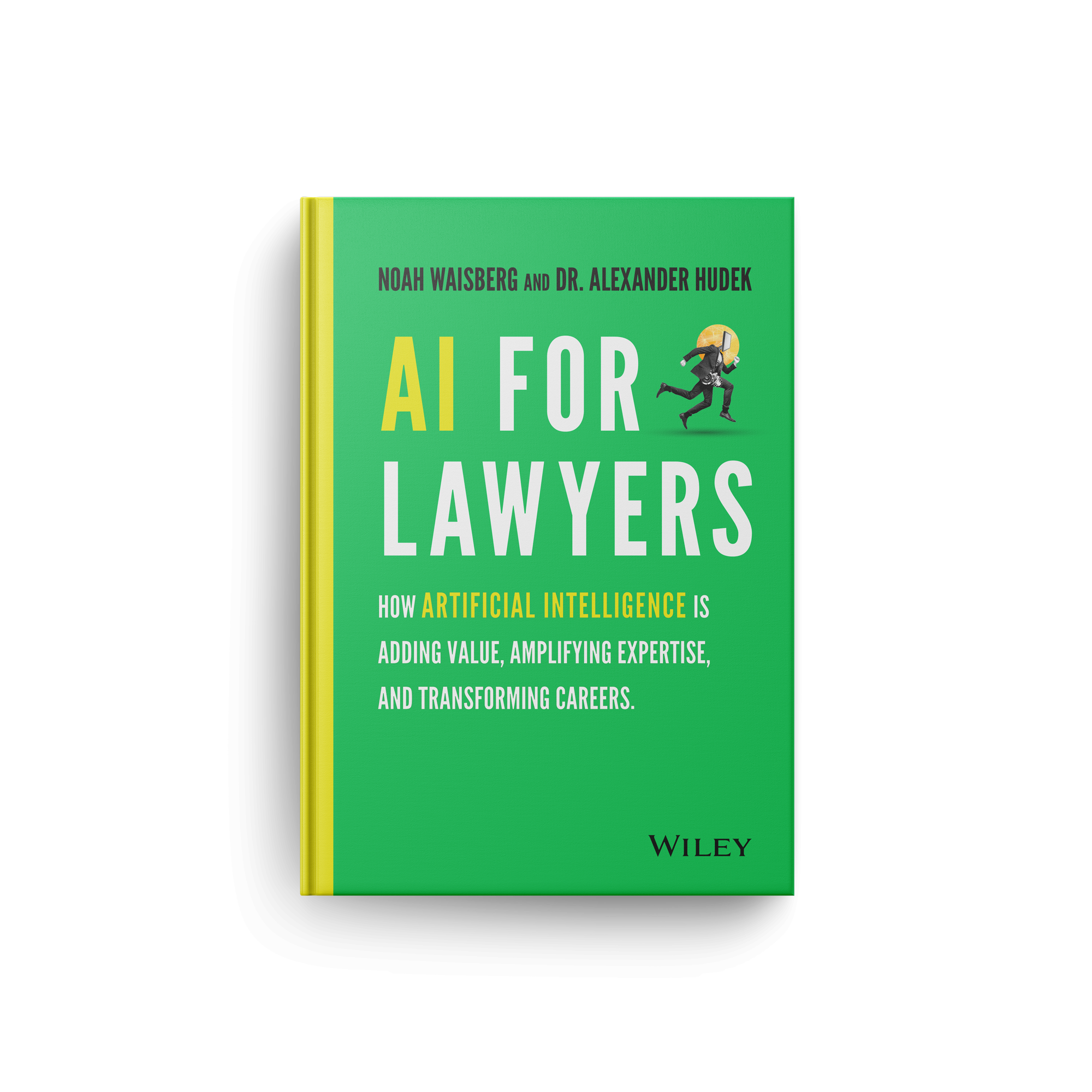"Many firms are not only ready, they are already fully immersed in the age of AI"
---
Book Review: AI For Lawyers (Wiley, 2021) written by Noah Waisberg and Dr. Alexander Hudek
Noah Waisberg, CEO & Co-Founder of Kira Systems and Alexander Hudek CTO & Co-Founder of Kira Systems wrote AI For Lawyers (Wiley, 2021), a new book on how AI is adding value, amplifying expertise, and transforming careers. Both of them summarized the key aspects of this essential book for lawyers.
What are the main aspects you summarize in your book AI For Lawyers?
AI for Lawyers aims to convey two messages:
1. AI is here in law practice, like it or not. It is already in heavy use in parts of the legal industry, and this will only grow. In time, its use will be ubiquitous.
2. AI can be great for lawyers, if they let it. It can help them do more, better work, generating happier clients; give them more interesting and fulfilling careers; and help them make more money.
In which manner AI can add value to a law firm?
AI adds value in the way that other technologies add value to any business. It can automate manual processes, it can perform certain types of routine work more quickly and accurately, and it can extract insights from large data sets in a way that humans can’t. But it can also amplify the value that law firms bring to their clients, by letting lawyers embed their knowledge into complex processes, extending its reach.
Adopting AI is a good business decision. For law firms and other legal services providers, it offers opportunities to do better quality work, increase realization rates, win new business, retain and upsell existing business, and do fixed-fee work more profitably. For companies, it enables them to do work faster and with less effort and - more importantly - better run their businesses, knowing rather than guessing at, for example, the details of their business relationships (as documented in their contracts).
AI also empowers adopters - through teaching AI systems new skills - to create competitive differentiation, build value in the organization rather than its individual lawyers, and potentially make money from capturing and distributing their expertise.

Are law firms really prepared for a full AI era?
Many firms are not only prepared, they are already fully immersed in an AI era. Law firms are using AI in eDiscovery processes in litigation, in legal research, in client-facing expert systems that deliver advice, and in contract analysis applications like Kira’s.
AI-based systems are becoming ubiquitous, in the same way that email or online legal research have become industry standard tools. There might be skepticism at first, but once new technologies reach a level of acceptance - and we are reaching that level with AI - they just become a normal and widely adopted part of legal practice.
Which kind of law firms are this book for?
AI for Lawyers is for any lawyer who either feels uneasy about how AI might change law or is looking to capitalize on the change.
We also made a point to include a section on AI in small law firms in the book. We think there’s a misconception that AI is only for large, global organizations with significant IT and financial resources. On the contrary, smaller law firms should also leverage AI. AI-based technologies can level the playing field, giving small firm lawyers the kind of capabilities that previously only larger firms had.

Do you think AI will revolutionise the legal sector entirely? Why?
Yes and no. AI enables lawyers to - as we mention in the book - do more law, take on greater challenges, dig deeper into the research, save time on mundane tasks, and to have the right data in front of them when making key decisions. AI should be part of every lawyer’s practice, whether in Biglaw, a small firm, or a corporate legal department. This applies whether the lawyer is in the United States, United Kingdom, Canada, Australia, Germany, Brazil, China, India, or elsewhere.
AI is already making an impact in the legal world. It’s being used for contract drafting, negotiation, and review; litigation document review and analysis; predicting case outcomes; suggesting courses of action; organizing legal research; time keeping; and lots more. It’s opening up possibilities never before imagined, and allowing lawyers to spend more time on law and less time on repetitive activities.
With that said, we expect that human lawyers will continue to serve clients, but AI will help them do it better.
Related links
Main menu






